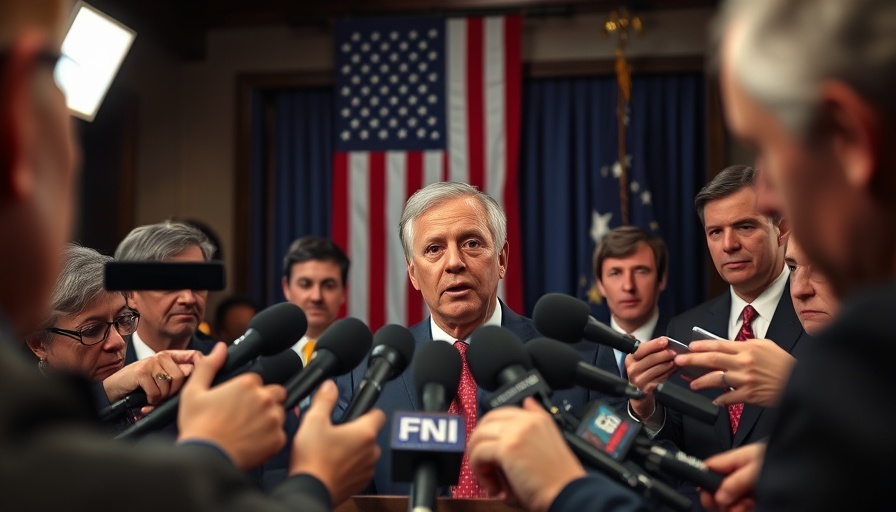
Trump's Bold Demand: Unconditional Surrender from Iran
In an increasingly complex geopolitical landscape, former President Donald Trump's recent assertion calling for Iran's "unconditional surrender" has raised eyebrows and ignited discussions across various political and economic spheres. Such an extreme request not only reflects Trump's unyielding stance on national security but also highlights the shifting dynamics of U.S.-Iran relations in light of ongoing tensions regarding nuclear capabilities and regional influence.
The Historical Context of U.S.-Iran Relations
The animosity between the United States and Iran dates back decades, with pivotal moments such as the 1979 Iranian Revolution, the U.S. Embassy hostage crisis, and subsequent sanctions shaping public perception and diplomatic efforts. Trump's provocative rhetoric taps into a well of resentment felt by many American policymakers who believe Iran's actions threaten both regional stability and global security.
Why Call for Surrender? The Motivations Behind Trump's Statement
Trump's call for Iran's surrender can be seen as a strategic move aimed at rallying his base supporters and reinforcing his hardline reputation. His statements serve as a reminder that America must stand firm against perceived aggressors. However, it is crucial to assess how this rhetoric affects ongoing diplomacy and the potential for future negotiations.
Diverse Perspectives: Balancing Security and Diplomacy
While Trump’s assertive position appeals to a faction of voters, many political analysts caution against such an abrasive stance, stressing the importance of diplomatic engagement. They argue that U.S. policy should balance toughness with dialogue, especially when it comes to coaxing Iran back to the negotiating table regarding its nuclear program. Diplomats advocate for clear communication to avoid misunderstandings that could escalate into conflict.
Future Predictions: Politically Charged Climate Ahead
The landscape ahead appears fraught with uncertainty. Political analysts predict that if tensions escalate due to Trump's hardline rhetoric, it could lead to more aggressive military stances from both the U.S. and Iran. This would not only heighten risks for the region but could also disrupt global economic markets, particularly energy prices that are highly sensitive to Middle Eastern conflicts.
The Local Implications: How Bay Area Businesses Feel the Ripple Effect
The Bay Area, as a hub for technology and innovation, is not immune to international tensions. Business leaders in Silicon Valley express concerns regarding how political instability could hinder venture capital funding and investments, particularly in tech startups reliant on globalization. The fallout of international decisions can lead to shifts in economic forecasts, affecting local business strategies.
Engaging All Sides: Opportunities for Corporate Social Responsibility
While the political rhetoric rages, many companies see an opportunity for growth in sustainability and corporate social responsibility through advocating for peace. As the Bay Area startups push for greener practices, the time is ripe for leaders to promote stability while also embracing sustainable business practices. This dual approach can strengthen brand loyalty and consumer behavior positively, allowing businesses to thrive even under geopolitical pressures.
Conclusion: The Path Forward for Businesses and Diplomats
As Trump intensifies calls for Iran's surrender, it is essential for both diplomatic leaders and business executives to evaluate their roles in a rapidly evolving situation. Dialogue may pave the way for stability, allowing Bay Area companies to flourish despite the ongoing turbulence. Businesses must stay informed and adaptable, ensuring they navigate these challenges effectively.
In light of these developments, it’s essential for leaders in the Bay Area to remain engaged with local and international dialogues, fostering an environment conducive to innovation and ethical practices. For those interested in understanding more about how these global issues impact local economies, keeping an eye on political shifts and their implications is crucial.
 Add Row
Add Row  Add
Add 



Write A Comment